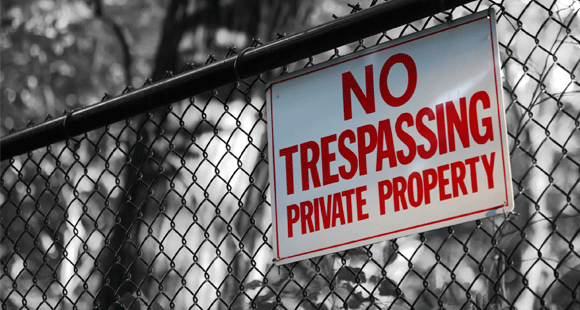The Utah Supreme Court holds that filing a foreclosure action on a valid judgment lien does not prevent the underlying judgment from expiring during that foreclosure action.
A statute of limitations is a legal rule setting the time within which a person must initiate legal proceedings based on an event. For example, if you want to sue someone for trespassing on your land, you must initiate your lawsuit with three calendar years of the trespass. If you fail to do so, you lose your right to sue for that trespass, unless special circumstances exist. Statutes of limitations apply in both civil and criminal cases.
There are two main reasons for having statutes of limitations. First, evidence becomes less reliable over time. A witness’s memory will fade, crime scenes will change, and records will be destroyed. Thus, it is best to bring a lawsuit while the evidence is still available and memories are fresh. Second, the legal system recognizes the value of allowing people to move on after an event occurs.
Statutes of limitations are also relevant to judgments. A judgment generally allows one party to a lawsuit (called the judgment creditor) to collect a specific amount of money from another party (called a judgment debtor). Once a creditor obtains a judgment, it can rely upon procedural rules to help collect the judgment, such as executing on the judgment debtor’s personal property or garnishing the judgment debtor’s wages. Judgments automatically expire after eight years, although they can be renewed if the judgment creditor satisfies certain procedures.
In addition to executing on the judgment debtor’s personal property or garnishing wages, the judgment creditor can file paperwork with a county recorder to create a judgment lien that attaches to any real property in that county in which the judgment debtor has an interest. If the debtor does not pay the judgment, the creditor can “foreclose” the judgment lien on the debtor’s interest in real property. The statute of limitations for actions on a judgment, including foreclosure actions on judgment liens, is eight years.
The Utah Supreme Court recently discussed in Gildea v. Wells Fargo Bank, N.A., 2015 UT 11, 2015 WL 337580, the relationship between the expiration of a judgment and the statute of limitations applicable to judgment foreclosure actions.
Gildea, a company called Classic Cabinets obtained an $11,069.25 judgment against a company called R/P Development on July 28, 2004. By statute, Classic Cabinets’ judgment would automatically expire on July 28, 2012. Classic Cabinets obtained a judgment lien against all the real property R/P Development owned. For about a year and a half, R/P Development made payments to Classic Cabinets, reducing the amount due on the judgment to $3,457.06. Classic Cabinets then sold all of its remaining rights under the judgment to a man named Mr. Gildea. R/P Development suddenly stopped making payments on the judgment, but Mr. Gildea took no action for over five years. On April 16, 2012, approximately three months before the judgment would expire, Mr. Gildea filed an action to foreclose his judgment lien on R/P Development’s property. While the foreclosure action was pending, the July 28, 2004 judgment expired. These facts raised this question for the Utah Supreme Court: Did the judgment’s expiration affect Mr. Gildea’s right to pursue his foreclosure action, which commenced but did not complete within the applicable eight-year statute of limitations?
The Utah Supreme Court first reviewed the rules relevant to judgments and judgment lien foreclosure actions. Specifically, it acknowledged that (1) judgments expire eight years after the date of entry, and (2) a foreclosure action on a judgment lien must be brought within eight years after the judgment’s date of entry. Next, the court noted that Mr. Gildea filed his foreclosure action within the eight-year statute of limitations, thus the foreclosure action was timely filed. But the foreclosure action did not conclude within the eight-year life of the judgment and Mr. Gildea did not seek to renew the judgment. The court held a timely-filed action to foreclose a judgment lien does not prevent the underlying judgment from expiring.
Therefore, Mr. Gildea should have initiated a foreclosure action well before the judgment’s expiration, thereby allowing sufficient time for the foreclosure action to conclude within the life of the underlying judgment. Alternatively, Mr. Gildea should have renewed the judgment in order to prevent its expiration during the foreclosure action.

